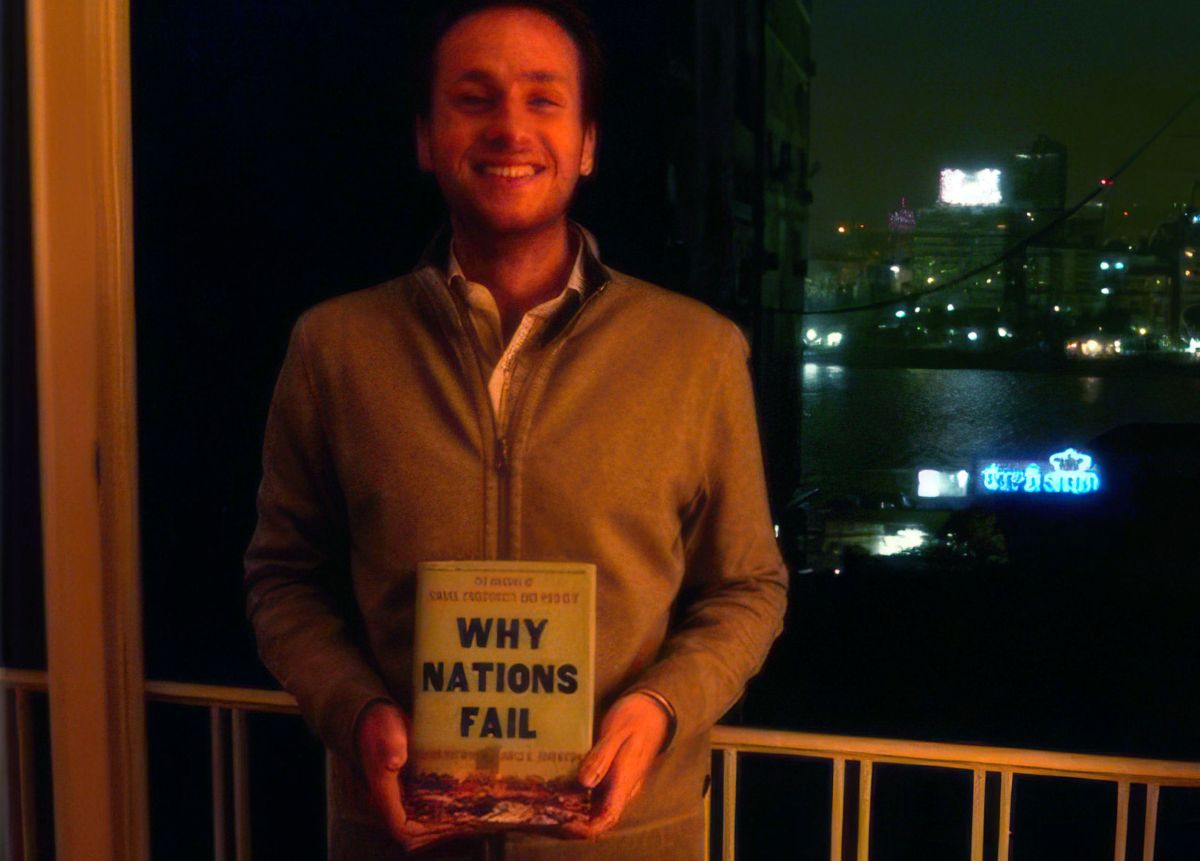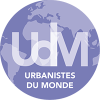Portrait

Portrait of Karim Goessinger (GLM 2012), Programme Director of Cairo Institute for Liberal Arts and Science (CILAS)
Posted on | Alumni Portrait
Portrait by Cyprien Butin on March 15, 2014
For this first portrait of an alumnus of the Governing the Large Metropolis master's program, I went to meet Karim Goessinger, a 2012 graduate who is now the Program Director of the Cairo Institute for Liberal Arts and Science (CILAS), which he himself founded a year ago. He welcomes me at his home in Cairo, in a beautiful apartment located between the Nile and the Giza Zoo.
With an Austrian father and an Egyptian mother, Karim grew up in Frankfurt, Germany. However, he keeps a close relationship with his two countries of origin where he spends most of his vacations. Two early experiences will be decisive in his future interest in urban issues.
First of all, with his Abitur (equivalent to the baccalaureate in Germany) in hand, he flew to Peru and Ecuador where he worked in a microcredit institution. There he was in direct contact with small entrepreneurs. The same year, he did an internship in Egypt with the German cooperation agency GIZ. This agency works on a rehabilitation project in the informal district of Manshiet Nasr where the famous "zabbalines" or "ragpickers of Cairo" live. There again, he is in contact with local actors. He notes the blockages created by the differences in language and motives put forward by each actor, between the search for profit, legitimacy and quality of life. The semantic dimension becomes for him unavoidable.
As an undergraduate, he studied in Maastricht at a Liberal Arts College where he specialized in political philosophy. He is particularly interested in theorists of justice, such as Susan Fainstein. In his third year, he moved to Rio de Janeiro. The inequality between the favelas and an upscale neighborhood like Ipanema led him to take an interest in the socio-spatial approach.
For the master's degree, he hesitated between continuing his study of theories of justice at University College London (UCL) and the brand new GLM master's degree at Sciences Po, whose presentation brochure attracted him a lot. He finally chose the latter university for its professionalism, the idea he had of the continental pedagogy, "more rigorous", and the cultural proximity, knowing that he is French-speaking as well as his Egyptian family.
At Sciences Po, he was quickly disappointed: on the one hand, there was little cohesion between the younger and already integrated students from the university college and those from abroad. A more substantial integration program would have facilitated the creation of a real master's "spirit", he says. On the other hand, the pedagogy does not really suit him. The professors are not available at the end of the course and the amount of knowledge to be ingested is much too great, which contrasts with his undergraduate experience.
For his fourth semester internship, he worked at the German development bank - KfW - on a World Bank project related to local governance issues in sub-Saharan Africa.
After graduation, he thought about what he could do and finally undertook the creation of a "Liberal Arts" platform in Cairo - CILAS - with the ambition of linking the city to an education accessible to the greatest number (despite the fact that the courses are exclusively in English, and not in Arabic? He then called upon his former classmates from Maastricht and Sciences Po (no GLM for the moment, but he is open to any proposal to become a "fellow"!)
Moreover, CILAS is a way to "correct the educational shortcomings of GLM" he tells me jokingly. The space-based (and sector-based) approach to policy is very relevant to him. Moreover, he uses the three pillars of the master's model - theory, internship, and collective project - for his own program. However, GLM would benefit from being open to more diverse profiles and from relying on sources other than academic articles.
His advice to GLM and STU students
Don't hesitate to use other means to study the city, for example through cinema, music, travel, blogs... On this subject, he gives me the example of Cairo where webzines such as Jadaliyya, Mada Masr and Cairobserver relay very high quality analyses on urban issues.
Margaux SALMON, STU-LSE class of 2012 "Urban governance and development" researcher at Groupe Huit
Posted on June 15, 2014
Margaux joined Sciences Po right out of high school, attracted in particular by the multidisciplinary nature of the program. She discovered urban affairs by ch…
Charlotte Degoulet (STU LSE, class of 2012) Urbanist at Couleurs d'Architecture, Guadeloupe
Posted on January 20, 2014
After an undergraduate degree at the decentralized campus of Poitiers, Charlotte Degoulet graduated in 2012 from the STU and RUPS (Regional and Urban Planning…
 English
English  Français
Français 




